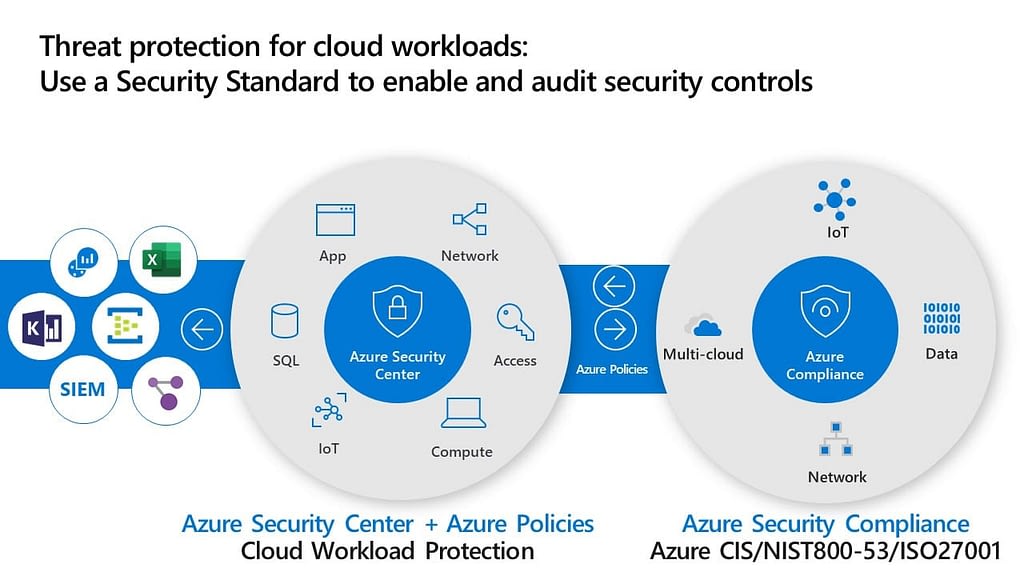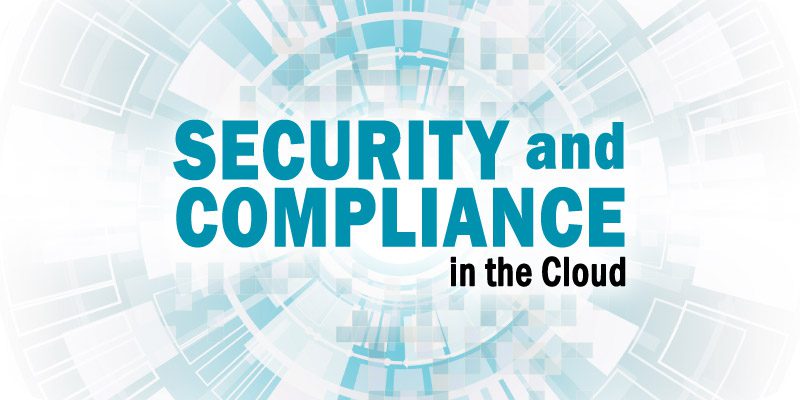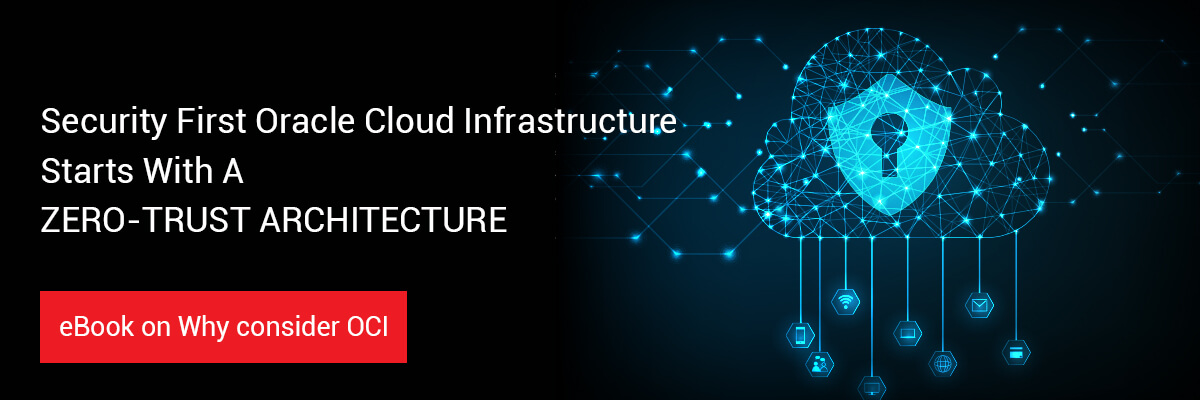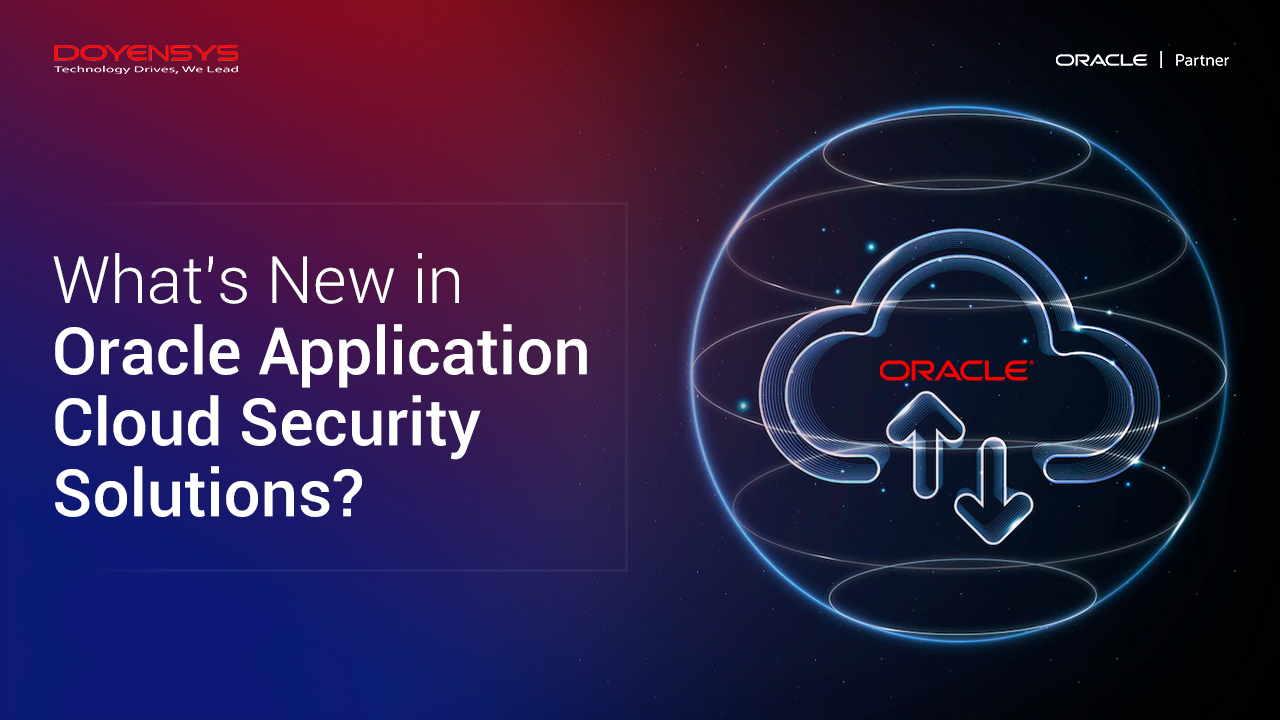Understanding Oracle Cloud Security and Compliance
Oracle Cloud Security and Compliance is a set of robust security measures and protocols designed to protect sensitive data and ensure regulatory compliance in the cloud. As businesses increasingly move their operations to the cloud, the need for secure and compliant infrastructure has become more critical than ever. Oracle Cloud Security and Compliance offers businesses a reliable and secure platform for storing and managing their data, with features and standards that meet or exceed industry requirements.
Oracle Cloud Security and Compliance encompasses a wide range of security features, including Identity and Access Management, Data Encryption, and Security Monitoring and Analytics. These features work together to provide a comprehensive security solution that helps businesses protect their data from unauthorized access, theft, and loss. By using Oracle Cloud, businesses can take advantage of these security features and ensure that their data is protected in accordance with various industry standards, such as SOC 1, SOC 2, and HIPAA.
In addition to its robust security features, Oracle Cloud also offers businesses a wide range of benefits, including scalability, flexibility, and cost savings. By using Oracle Cloud, businesses can quickly and easily scale their operations to meet changing demands, without the need for significant upfront investment in infrastructure. They can also take advantage of Oracle’s flexible pricing models, which allow them to pay only for the resources they use, rather than investing in expensive hardware and software.
In summary, Oracle Cloud Security and Compliance is a critical component of any business’s cloud strategy. By using Oracle Cloud, businesses can take advantage of robust security features, comply with various industry standards, and enjoy the benefits of scalability, flexibility, and cost savings. As businesses continue to move their operations to the cloud, Oracle Cloud Security and Compliance will remain a key consideration for ensuring the security and compliance of their data.
Key Security Features of Oracle Cloud
Oracle Cloud Security and Compliance offers a wide range of security features designed to protect sensitive data and prevent unauthorized access. These features include Identity and Access Management, Data Encryption, and Security Monitoring and Analytics. By using these features, businesses can ensure that their data is protected in accordance with various industry standards, such as SOC 1, SOC 2, and HIPAA.
Identity and Access Management is a critical component of Oracle Cloud Security and Compliance. It allows businesses to manage user identities and access to cloud resources, ensuring that only authorized users have access to sensitive data. With Identity and Access Management, businesses can define and enforce access policies, manage user roles and permissions, and monitor user activity. This helps prevent unauthorized access and ensures that users only have access to the resources they need to perform their jobs.
Data Encryption is another important security feature of Oracle Cloud Security and Compliance. It allows businesses to encrypt sensitive data, both at rest and in transit, ensuring that it is protected from unauthorized access. With Data Encryption, businesses can use a variety of encryption algorithms, such as Advanced Encryption Standard (AES) and Triple Data Encryption Algorithm (TDE), to secure their data. This helps prevent data breaches and ensures that sensitive information is protected in accordance with various industry standards.
Security Monitoring and Analytics is a proactive security feature of Oracle Cloud Security and Compliance. It allows businesses to monitor their cloud environment for suspicious activity and potential security threats. With Security Monitoring and Analytics, businesses can use a variety of tools, such as Security Information and Event Management (SIEM) and Intrusion Detection Systems (IDS), to detect and respond to security threats in real-time. This helps prevent data breaches and ensures that businesses can quickly respond to potential security threats.
In summary, Oracle Cloud Security and Compliance offers a wide range of security features designed to protect sensitive data and prevent unauthorized access. By using Identity and Access Management, Data Encryption, and Security Monitoring and Analytics, businesses can ensure that their data is protected in accordance with various industry standards. These features help prevent data breaches, ensure data privacy, and provide businesses with the peace of mind they need to operate in the cloud.
Oracle Cloud Compliance Standards
Oracle Cloud Security and Compliance adheres to a wide range of compliance standards designed to ensure the security and privacy of sensitive data in the cloud. These standards include SOC 1, SOC 2, HIPAA, and many others. By using Oracle Cloud, businesses can ensure that they are meeting the necessary compliance requirements for their industry.
SOC 1 and SOC 2 are two of the most common compliance standards for cloud services. SOC 1 focuses on the internal controls related to financial reporting, while SOC 2 focuses on the controls related to security, availability, processing integrity, confidentiality, and privacy. By adhering to these standards, Oracle Cloud demonstrates its commitment to providing a secure and reliable platform for businesses to store and manage their data.
HIPAA is another important compliance standard for businesses in the healthcare industry. It outlines the requirements for protecting patient data and ensuring its privacy. By using Oracle Cloud, healthcare businesses can ensure that they are meeting the necessary HIPAA compliance requirements, including data encryption, access controls, and security monitoring.
Oracle Cloud also adheres to a wide range of other compliance standards, including ISO 27001, PCI DSS, and GDPR. By using Oracle Cloud, businesses can ensure that they are meeting the necessary compliance requirements for their industry, without having to invest in additional security measures.
In summary, Oracle Cloud Security and Compliance adheres to a wide range of compliance standards designed to ensure the security and privacy of sensitive data in the cloud. By using Oracle Cloud, businesses can ensure that they are meeting the necessary compliance requirements for their industry, without having to invest in additional security measures. With its commitment to compliance, Oracle Cloud provides businesses with the peace of mind they need to operate in the cloud.
Best Practices for Oracle Cloud Security and Compliance
Implementing Oracle Cloud Security and Compliance is essential for protecting sensitive data and ensuring regulatory compliance in the cloud. To maximize the benefits of Oracle Cloud Security and Compliance, businesses should follow best practices for implementation and management. Here are some best practices for implementing Oracle Cloud Security and Compliance:
- Regularly review access controls: Regularly review access controls to ensure that only authorized users have access to sensitive data. This includes implementing strong password policies, multi-factor authentication, and role-based access control.
- Monitor security logs: Monitor security logs to detect and respond to security threats in real-time. This includes using tools like Security Information and Event Management (SIEM) and Intrusion Detection Systems (IDS) to detect and respond to potential security threats.
- Encrypt sensitive data: Encrypt sensitive data both at rest and in transit to prevent unauthorized access. Oracle Cloud provides a variety of encryption algorithms, such as Advanced Encryption Standard (AES) and Triple Data Encryption Algorithm (TDE), to secure data.
- Implement security policies: Implement security policies that define the rules and procedures for accessing and using sensitive data. This includes policies for data classification, data retention, and data backup and recovery.
- Regularly test security controls: Regularly test security controls to ensure that they are working effectively. This includes performing vulnerability assessments, penetration testing, and security audits.
By following these best practices, businesses can ensure the security and compliance of sensitive data in the cloud. It is important to note that implementing Oracle Cloud Security and Compliance is an ongoing process that requires regular monitoring and updates to ensure that security controls remain effective.
Real-World Examples of Oracle Cloud Security and Compliance
Many businesses have successfully implemented Oracle Cloud Security and Compliance to protect sensitive data and ensure regulatory compliance. Here are some real-world examples of how businesses have benefited from Oracle Cloud Security and Compliance:
- Healthcare provider: A healthcare provider implemented Oracle Cloud Security and Compliance to ensure HIPAA compliance and protect patient data. By using Oracle Cloud, the healthcare provider was able to encrypt patient data, implement access controls, and monitor security logs. As a result, the healthcare provider was able to reduce the risk of data breaches and improve patient trust.
- Financial services firm: A financial services firm implemented Oracle Cloud Security and Compliance to ensure SOC 1 and SOC 2 compliance. By using Oracle Cloud, the financial services firm was able to implement multi-factor authentication, access controls, and security monitoring. As a result, the financial services firm was able to reduce the risk of data breaches and improve regulatory compliance.
- Retail company: A retail company implemented Oracle Cloud Security and Compliance to protect sensitive customer data. By using Oracle Cloud, the retail company was able to encrypt customer data, implement access controls, and monitor security logs. As a result, the retail company was able to reduce the risk of data breaches and improve customer trust.
These real-world examples demonstrate the benefits of implementing Oracle Cloud Security and Compliance. By using Oracle Cloud, businesses can protect sensitive data, ensure regulatory compliance, and improve customer trust. It is important to note that implementing Oracle Cloud Security and Compliance requires careful planning and ongoing monitoring to ensure that security controls remain effective.
How to Implement Oracle Cloud Security and Compliance
Implementing Oracle Cloud Security and Compliance is essential for protecting sensitive data and ensuring regulatory compliance in the cloud. Here are the steps involved in implementing Oracle Cloud Security and Compliance, along with detailed instructions and best practices for each step:
- Assess current security measures: Before implementing Oracle Cloud Security and Compliance, it is important to assess your current security measures. This includes identifying any vulnerabilities, assessing your risk profile, and determining your compliance requirements. Best practices for this step include conducting a security audit, performing a risk assessment, and consulting with a security expert.
- Configure security settings: Once you have assessed your current security measures, the next step is to configure your Oracle Cloud Security and Compliance settings. This includes configuring access controls, data encryption, and security monitoring. Best practices for this step include implementing multi-factor authentication, using role-based access control, and enabling security monitoring and analytics.
- Monitor security logs: After configuring your security settings, it is important to monitor your security logs regularly. This includes reviewing access logs, security alerts, and audit trails. Best practices for this step include using Security Information and Event Management (SIEM) tools, setting up alerts for security events, and reviewing logs daily.
- Test security controls: Once you have configured your security settings and started monitoring your security logs, it is important to test your security controls regularly. This includes performing vulnerability assessments, penetration testing, and security audits. Best practices for this step include using automated tools for vulnerability scanning, conducting regular security audits, and addressing any identified vulnerabilities promptly.
- Maintain compliance: After implementing Oracle Cloud Security and Compliance, it is important to maintain compliance regularly. This includes reviewing your compliance posture, updating your security settings, and addressing any compliance issues promptly. Best practices for this step include conducting regular compliance audits, updating your security policies, and addressing any compliance issues promptly.
By following these steps, businesses can implement Oracle Cloud Security and Compliance effectively. It is important to note that implementing Oracle Cloud Security and Compliance is an ongoing process that requires regular monitoring and updates to ensure that security controls remain effective.
Challenges and Solutions for Oracle Cloud Security and Compliance
Implementing Oracle Cloud Security and Compliance can be challenging for businesses, especially when it comes to configuring access controls and ensuring data privacy. Here are some common challenges and solutions for implementing Oracle Cloud Security and Compliance:
- Configuring access controls: Configuring access controls can be challenging for businesses, especially when dealing with large numbers of users and resources. Best practices for configuring access controls include implementing role-based access control, using multi-factor authentication, and regularly reviewing access logs. Additionally, businesses can use automated tools for access control management to simplify the process and reduce the risk of errors.
- Ensuring data privacy: Ensuring data privacy is essential for businesses, especially when dealing with sensitive customer data. Best practices for ensuring data privacy include encrypting data at rest and in transit, implementing access controls, and regularly reviewing security logs. Additionally, businesses should ensure that they are compliant with data privacy regulations, such as GDPR and CCPA, and should consider using tools for data loss prevention and data masking to protect sensitive data.
- Managing security updates: Managing security updates can be challenging for businesses, especially when dealing with large numbers of resources. Best practices for managing security updates include implementing automated patch management, regularly reviewing security advisories, and testing patches in a non-production environment before deploying them to production. Additionally, businesses should ensure that they have a disaster recovery plan in place in case of a security incident.
- Monitoring security logs: Monitoring security logs is essential for detecting and responding to security incidents. Best practices for monitoring security logs include using Security Information and Event Management (SIEM) tools, setting up alerts for security events, and reviewing logs daily. Additionally, businesses should ensure that they have a incident response plan in place and that they are prepared to respond to security incidents quickly and effectively.
By addressing these challenges and following best practices, businesses can implement Oracle Cloud Security and Compliance effectively. It is important to note that implementing Oracle Cloud Security and Compliance is an ongoing process that requires regular monitoring and updates to ensure that security controls remain effective.
The Future of Oracle Cloud Security and Compliance
As businesses continue to move their sensitive data to the cloud, the importance of Oracle Cloud Security and Compliance will only continue to grow. Here are some emerging trends and technologies that will shape the future of Oracle Cloud Security and Compliance, and how Oracle is addressing these trends to help businesses protect their sensitive data in the cloud:
- Artificial Intelligence and Machine Learning: Artificial Intelligence (AI) and Machine Learning (ML) are becoming increasingly important in the field of cybersecurity. Oracle is using AI and ML to develop advanced threat detection and response capabilities, helping businesses to detect and respond to security threats in real-time. By using AI and ML, Oracle is able to analyze large volumes of data and identify patterns and anomalies that might indicate a security threat, enabling businesses to take action quickly and effectively.
- Zero Trust Security: Zero Trust Security is a security model that assumes that all network traffic is untrusted, and that all users and devices must be authenticated and authorized before accessing sensitive data. Oracle is embracing the Zero Trust Security model, and is providing businesses with the tools and capabilities they need to implement Zero Trust Security in their cloud environments. By implementing Zero Trust Security, businesses can reduce the risk of data breaches and ensure that only authorized users and devices have access to sensitive data.
- Cloud Native Security: Cloud Native Security is a security model that is designed specifically for cloud environments. Oracle is providing businesses with cloud native security capabilities, such as container security and serverless security, to help them protect their cloud native applications and workloads. By using cloud native security, businesses can ensure that their cloud native applications and workloads are secure, and that they are compliant with industry standards and regulations.
- Multi-Cloud Security: Many businesses are using multiple cloud providers to meet their business needs. Oracle is providing businesses with multi-cloud security capabilities, such as multi-cloud identity and access management and multi-cloud security monitoring, to help them secure their multi-cloud environments. By using multi-cloud security, businesses can ensure that their sensitive data is protected across all of their cloud environments, and that they are compliant with industry standards and regulations.
By addressing these emerging trends and technologies, Oracle is helping businesses to protect their sensitive data in the cloud, and to ensure that they are compliant with industry standards and regulations. With its robust security features and commitment to innovation, Oracle Cloud is well positioned to help businesses meet the challenges of the future and to take advantage of the opportunities that the cloud has to offer.







